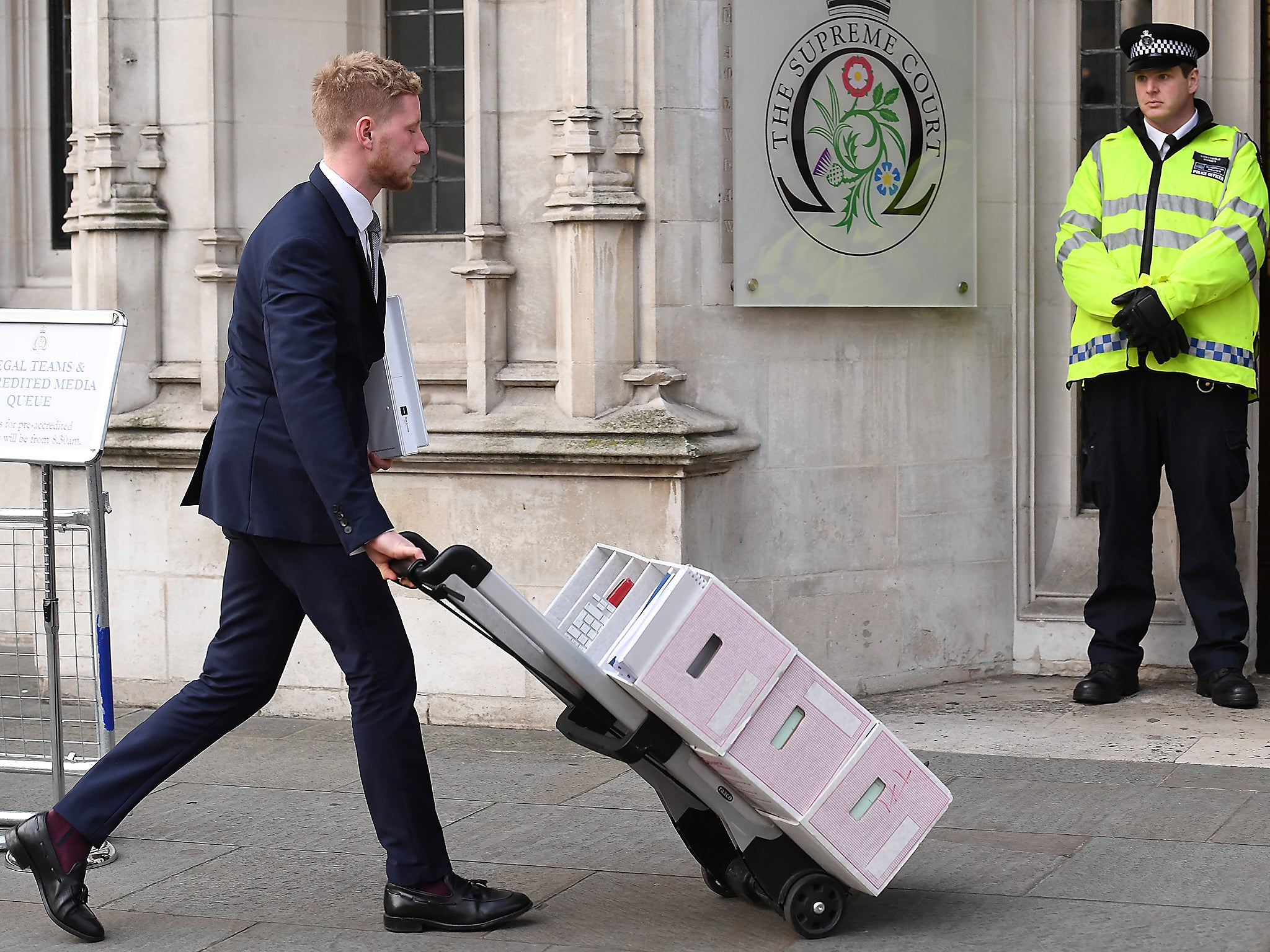Brexit legal challenge: Scotland and Northern Ireland must consent to Article 50, Supreme Court told
Representatives of devolved regions have made their submissions to the Supreme Court in the Brexit legal challenge

Your support helps us to tell the story
From reproductive rights to climate change to Big Tech, The Independent is on the ground when the story is developing. Whether it's investigating the financials of Elon Musk's pro-Trump PAC or producing our latest documentary, 'The A Word', which shines a light on the American women fighting for reproductive rights, we know how important it is to parse out the facts from the messaging.
At such a critical moment in US history, we need reporters on the ground. Your donation allows us to keep sending journalists to speak to both sides of the story.
The Independent is trusted by Americans across the entire political spectrum. And unlike many other quality news outlets, we choose not to lock Americans out of our reporting and analysis with paywalls. We believe quality journalism should be available to everyone, paid for by those who can afford it.
Your support makes all the difference.The Scottish and Northern Irish governments must give their consent before Article 50 can be triggered, the Supreme Court has been told.
Lawyers representing the devolved regions of the UK made the claims today in the third day of the appeal against MPs being entitled to vote on Article 50. The Government brought the appeal after the High Court found last month that Theresa May has insufficient authority to begin EU withdrawal and instead must put her proposals to a parliamentary vote.
The Lord Advocate for Scotland, James Wolffe, told the court that for Westminster to trigger Article 50 without the approval of Scottish politicians “would be unconstitutional”.
Representing Northern Ireland, QCs David Scoffield and Ronan Lavery told the court that to do so could undermine the Good Friday Agreement and the constitutional status of Northern Ireland, which is built on self-determination and consent of its citizens. They have also argued Northern Ireland’s relationship with the Republic of Ireland could be fundamentally altered once the UK leaves the EU. Questions remain such as whether a border will need to be established between Northern Ireland and the Republic of Ireland once this occurs.
The regions are arguing that a legislative consent motion (LCM) needs to be put to both the Scottish Assembly and Northern Ireland Assembly before Brexit can happen.
Although a majority of voters in the UK opted to leave the EU, a majority of voters in Scotland and Northern Ireland voted to stay; amounting to 62 per cent and 56 per cent respectively.
Eleven of the most senior judges in the country are currently hearing the Government’s appeal on whether it can trigger Article 50 without a parliamentary vote. Ms May has spoken of her intention to do so by the end of the coming spring, however the plan was derailed last month when the High Court ruled Parliament must be consulted first.
If MPs at Westminster are granted a vote on triggering Article 50, it is unlikely that they would vote to reject it out of respect to voters’ preferences in the referendum result. However, it is possible that they would agree to a watered down version of proposals in what would amount to a ‘soft Brexit’.
If the Scottish and Northern Irish devolved parliaments are entitled to vote on the matter, this could delay Brexit further. In addition, it is possible that local politicians could vote to reject the proposal on behalf of their constituents.
The Supreme Court hearing is due to last four days, concluding on Thursday. A judgment is anticipated for early in the new year.
Join our commenting forum
Join thought-provoking conversations, follow other Independent readers and see their replies
Comments